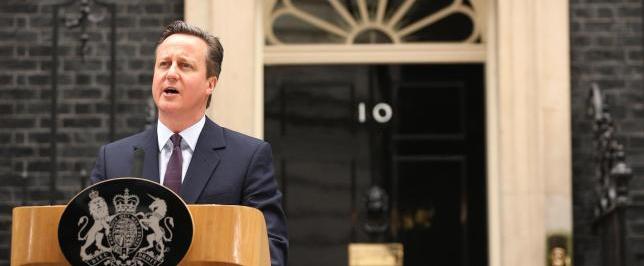We all know that David Cameron is enthusiastic about India. Why shouldn’t he be, and why wouldn’t he be?
His enthusiasm follows a long line of UK prime ministers who shared a similar optimism about the country. John Major launched the Indo-British Partnership to boost trade and investment with his Indian counterpart P.V. Narshima Rao back in 1993.
This partnership evolved into the Indo-British Partnership Network (IBPN) paving the way for today’s UK India Business Council (UKIBC) by 2005 – when the then Prime Minister Tony Blair launched the UK-India Strategic Partnership, which officials in both countries to this day regard as the holy grail of the bilateral relationship. His successor, Gordon Brown, in taking a heavy-weight delegation to India in 2008, changed the rules of engagement forever by repeatedly referring the relationship as being between two equals.
But Cameron’s surprising outright victory in last week’s UK general elections has rightly revived expectations of a renewed bond. Admirably his party manifesto referred to India six times, whereas in contrast Labour stood accused of taking its Indian diaspora supporters for granted by failing to even make a fleeting reference to the world’s largest democracy.
BREXIT
There is of course the small issue of David Cameron’s promise to hold an “In-Out Referendum” on Europe in 2017, popularly referred to as the BREXIT (Britain’s Exit) threat. Nearly 81 per cent of the Confederation of British Industry members are clear that they see Britain’s interests firmly within Europe.
Indeed, virtually all the Indian companies in the UK I speak to say precisely the same thing. They made the UK their home and invested heavily here as they saw it as the ideal launch-pad into Europe. A home away from home, with access to the European single market and estimated 500 million consumers across the continent.
The murmurings may question whether Cameron made a historic blunder in promising something that will most certainly divide his party and preoccupy the UK government on matters domestic and European, at the expense to “special partners” such as India.
But there is hope in the newly re-elected PM’s pledge to campaign to stay IN following a promised renegotiation of a better deal for the UK.
So here are five commitments that will demonstrate that Cameron is serious on India:
1. It has been 10 years since Blair and the then Indian PM, Manmohan Singh, signed the UK India Strategic Partnership. It is time to renew vows by signalling a fresh relationship taking into consideration Prime Minister Modi’s vision and priorities for aspirational India.
2. A re-setting of the target to double trade and investment over the next five years along with absolute clarity on the rules by which trade figures will be measured. No fudging.
3. UK Chancellor George Osborne increased funding to UKTI to support UK business entering China by £6.5 million in his last budget but failed to increase funding for India. At the very least, the UK India Business Council should receive the same level of funding as its China equivalent. Currently, I understand, I am told it’s less than a third!
4. A comprehensive agreement on green technology collaboration with India, to ensure the very best of UK technology is accessible to India, and at affordable prices. This will help India to make better and bolder commitments at the Paris Climate Change conference in December 2015. Beating developing countries like India with the climate change stick without putting in place seriously bankable solutions is a tad disingenuous.
5. Under David Cameron the number of Indian students coming to the UK has dropped by 36 per cent. While Indian students remain the second-largest international group, more needs to be done to ensure long-term equity with India so that Indian students do not feel less welcome in the UK than in the US, Canada and Australia.
The UK’s pre-eminence is a historical fact –Britain ranks as the largest European investor in the country and India the second-largest investor in the UK.
However, enthusiasm alone won’t be enough for the next era of bilateral ties. Actions, timeframes, measured deliverables will have to count over the soundbites. Otherwise, the UK quite quickly may be reduced as one Indian minister recently said to me “the best transit base that Indians visiting the US or Europe could ever have hoped for”. And not much more. Hopefully the prospect of a Modi visit to the UK will help focus minds.
Manoj Ladwa is the founder of India Inc. and chief executive of MLS Chase Group @manojladwa







